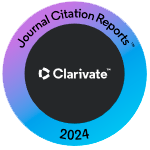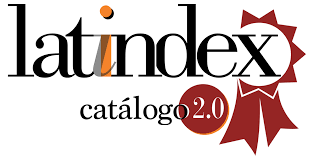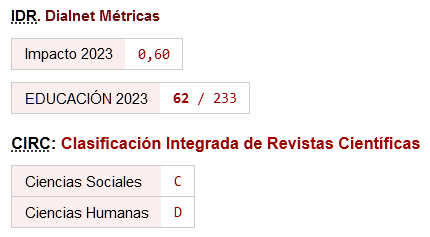Information and Communication Technologies and functional diversity: knowledge and training of teachers in Navarra
DOI:
https://doi.org/10.46661/ijeri.4407Keywords:
Information and Communication Technologies, functional diversity, disability, teacher training, educational technology, accessibilityAbstract
In recent years, considerable progress has been made in analyzing ICTs as significant instruments that favor the inclusion of people with different types of cognitive, sensory, or motor diversity. Although there are quality practices linked to the use of ICT, and an increasing interest in the educational use of these technological tools, there is still a great concern as how to solve the different difficulties in digital competence that teachers present, and even more in contexts of diversity. Therefore, teachers are configured as a key element to achieve full inclusion of ICT in the classroom. In this framework, it is intended to make a diagnosis in relation to the training and knowledge of active Primary Education teachers, in relation to ICT applied to people with functional diversity. Under the methodological aspect, a qualitative research design has been carried out, developed from the Grounded Theory approach. The information has been obtained from the analysis of 52 interviews with professionals in the education sector of the Spanish state of Navarra (members of management teams, ICT coordinators, directors and technological advisors of training centers). Among the conclusions we place a stress on the low training of teachers, the low development of training activities, and also note that the main barriers that hinder such completion of ICT training activities and functional diversity in the Community of Navarra are determined primarily by economic factors and the lack of time.
Downloads
References
Alper, M. y Goggin, G. (2017). Digital technology and rights in the lives of children with disabilities. New Media & Society.. Recuperado de: http://journals.sagepub.com/doi/full/10.1177/1461444816686323
Altinay A. y Altinay, Z. (2015). Examination on ICT integration into Special Education Schools for Developing Countries. TOJET: The Turkish Online Journal of Educational Technology, 14 (3), 70-72.
Álvarez, J. F., y Gisbert, M. (2015). Grado de alfabetización informacional del profesorado de Secundaria en España: Creencias y autopercepciones. Comunicar, XXIII, 45,187-194, doi: 10.3916/C45-2015-20
Barrantes, C. G., Casas G. L., y Luengo G. R. (2011). Obstáculos percibidos para la integración de las TIC por los profesores de infantil y primaria en Navarra. Pixel-Bit. Revista de Medios y Educación, 39, 83-94.
Cabero, J., Fernández Batanero, J. M. y Barroso, J. (2016). Los alumnos del grado de magisterio: TIC y discapacidad. REDIE. Revista Electrónica de Investigación Educativa, 18(3), 106-120. Recuperado de http://redie.uabc.mx/redie/article/view/965
Fernández Batanero, J. M. y Bermejo, B. (2012). Actitudes docentes hacia las TIC en centros de buenas prácticas educativas con orientación inclusiva. Enseñanza & Teaching, 30(1), 45-46.
Fernández-Batanero, J. M. (2017). IC y diversidad funcional. Hacia la calidad y equidad En López-Meneses, E.; Cobos-Sanchiz, D.; Martín Padilla, A. H.; Molina-García, L. y Jaén Martínez, A. (eds.) (2017). INNOVAGOGÍA 2016. III Congreso Internacional sobre Innovación Pedagógica y Praxis Educativa. Libro de Actas. 28, 29 y 30 de noviembre de 2016. AFOE Formación: Sevilla.
Fernández-Batanero, J.M. y Rodríguez, A. (2017). TIC y diversidad funcional: conocimiento del profesorado. EJIHPE. European Journal of Investigation in Health, Psychology and Education, 7 (3), 157-175.
Fernández-Batanero, J.M., López-Meneses, E., Vázquez-Cano, E. y Moreno-Martínez, N. Mª. (2018). Diversidad funcional y tecnologías de la información y la comunicación. Barcelona: Octaedro.
Fernández Batanero, J. M., Cabero, J. y López, E. (2019). Knowledge and Degree of Training of Primary Education Teachers in Relation to ICT Taught to Students With Disabilities. British journal of educational technology. 50(4), 1961-1978. https://doi.org/10.1111/bjet.12675
Fernández Batanero, J. M. (2020). TIC y discapacidad: investigación e innovación educativa. Barcelona: Octaedro.
Fleiss, J. L. (1981). Statistical methods for rates and proportions. New York: John Wiley and Sons.
González, A. y De Pablos, J. (2015). Factores que dificultan la integración de las TIC en las aulas. Revista de Investigación Educativa, 33 (2), 401-417. doi: http://dx.doi.org/10.6018/rie.33.2.198161
Hollier, S. (2017). Technology, education and access: A 'fair go' for people with disabilities. 14th International Web for All Conference, W4A.
Homero, G., Tejedor, F. J. y Calvo, M. I. (2017). Meta-análisis sobre el efecto del software educativo en alumnos con necesidades educativas especiales. Revista de Investigación Educativa, 35 (1), 35-52.
Morales, P. T. y Llorente Cejudo, M. C. (2016). Formación inicial del profesorado en el uso de Tecnologías de la Información y la Comunicación (TIC) para la educación del discapacitado. Digital Education Review, 30, 123-134.
OMS. (2001). International Classification of Functioning, Disability and Health. Ginebra, Organización Mundial de la Salud.
Ortíz, A. M., Almanzán, L., Peñaherrera, M. y Cachón, J. (2014). Formación en TIC de futuros maestros desde el análisis de la práctica en la Universidad de Jaén. Pixel-Bit. Revista de Medios y Educación, 44, 127-142.
Ramírez, E., Cañedo, I. y Clemente, M. (2011). Las actitudes y creencias de los profesores de secundaria sobre el uso del Internet en sus clases. Comunicar, XIX (38), 47-155.
Rangel, P. y Peñalosa, E. (2013). Alfabetización digital en docentes de educación superior: construcción y prueba empírica de un instrumento de evaluación. Pixel-Bit. Revista de Medios y Educación, 43, 9-23.
Roig, R.; Ferrández, S.; Rodríguez-Cano, C. y Crespo, M. (2012). El uso de las TIC en el aula de Educación Especial: percepción de los maestros, en Juan Navarro, María Teresa Fernández, Francisco Javier Soto y Francisco Tortosa (coords.). Respuestas flexibles en contextos educativos diversos. Murcia: Consejería de Educación, Formación y Empleo. Recuperado de: http://diversidad. murciaeduca.es/publicaciones/dea2012/docs/ rroig.pdf
Romañach, J. y Lobato, M. (2005). Diversidad funcional, nuevo término para la lucha por la dignidad en la diversidad del ser humano, Foro de Vida Independiente. Recuperado de: http://forovidaindependiente.org/wp-content/uploads/diversidad_funcional.pdf
Rosario, H. y Vásquez, L. (2012). Formación del docente universitario en el uso de tic. Caso de las universidades públicas y privadas. (U. de Carabobo y U. Metropolitana). Pixel-Bit. Revista de Medios y Educación, 41, 163-171.
Shin, W. S. (2015). Teachers’ use of technology and its influencing factors in Korean elementary schools. Technology, Pedagogy and Education, 24, 461–476. doi:10.1080/1475939x.2014.915229.
Tello, I y Cascales, A. (2015). Las TIC y las necesidades específicas de apoyo educativo: análisis de las competencias tic en los docentes. RIED, 18 (2), 355-383.
Turner-Cmuchal, M. y Aitken, S. (2016). ICT as a tool for supporting inclusive learning opportunities. Perspectivas Internacionales sobre la Educación Inclusiva, 8, 159-180.
Villalba, A., González-Rivera, M. D. y Díaz-Pulido, B. (2017). Obstacles perceived by physical education teachers to integrating ICT. Turkish Online Journal of Educational Technology, 16 (1), 83-92.
Downloads
Published
How to Cite
Issue
Section
License
Copyright (c) 2020 Eloy López Meneses, José Fernández Cerero

This work is licensed under a Creative Commons Attribution-NonCommercial-NoDerivatives 4.0 International License.












